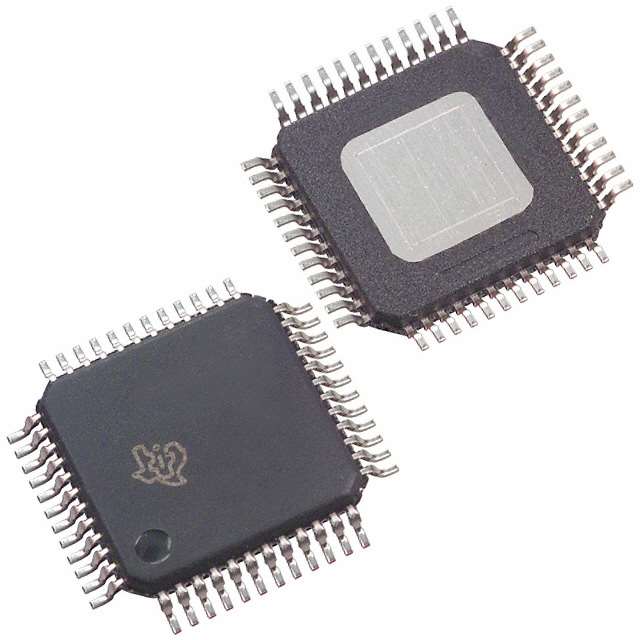

Texas Instruments
TPS65218B1PHPT
Special Purpose Regulators




.png?x-oss-process=image/format,webp/resize,p_30)


TPS65218B1PHPT Description
TPS65218B1PHPT Description
The TPS65218B1PHPT from Texas Instruments is a highly integrated power management IC (PMIC) designed for ARM Cortex-A8/A9-based applications. This 7-output regulator combines multiple voltage rails into a single compact solution, supporting input voltages from 2.2V to 5.5V. Packaged in a 48-pin HTQFP and available in Tape & Reel (TR), it is optimized for surface-mount assembly. Though marked as Not For New Designs, it remains a reliable choice for legacy systems requiring robust power management. The device complies with ROHS3 and REACH environmental standards, with a Moisture Sensitivity Level (MSL) of 3 (168 hours).
TPS65218B1PHPT Features
- Multi-Output Integration: Seven regulated outputs minimize external components, reducing PCB footprint and BOM cost.
- Wide Input Range (2.2V–5.5V): Supports diverse power sources, including Li-ion batteries and regulated DC supplies.
- Optimized for ARM Processors: Tailored for Cortex-A8/A9 cores, ensuring stable voltage sequencing and low noise.
- High Efficiency: Switching regulators and LDOs maximize power efficiency for battery-sensitive applications.
- Robust Protection: Features overcurrent, overtemperature, and undervoltage lockout (UVLO) safeguards.
- Industry-Standard Compliance: ROHS3, REACH Unaffected, and EAR99 classifications ensure global usability.
TPS65218B1PHPT Applications
- Embedded Systems: Ideal for industrial control, IoT gateways, and single-board computers (SBCs) using ARM Cortex-A8/A9.
- Portable Electronics: Suited for handheld devices, medical monitors, and battery-powered equipment requiring multi-rail power.
- Legacy Designs: Maintains power integrity in existing products where redesigns are impractical.
- Automotive Infotainment: Supports secondary power management in dashboards and telematics (non-safety-critical).
Conclusion of TPS65218B1PHPT
The TPS65218B1PHPT excels in consolidating power delivery for ARM-based systems, offering efficiency, integration, and reliability. While not recommended for new designs, its proven performance makes it a pragmatic choice for sustaining legacy applications. Engineers valuing reduced complexity and proven stability will find this PMIC a compelling solution for embedded and portable electronics.
Tech Specifications
TPS65218B1PHPT Documents
Download datasheets and manufacturer documentation for TPS65218B1PHPT
 TPS65218B Datasheet Powering AM335x,437x w/TPS65218 Guide
TPS65218B Datasheet Powering AM335x,437x w/TPS65218 Guide  TPS65218B Datasheet
TPS65218B Datasheet  TPS65218 17/Oct/2017 Data Sheet Chg 04/Feb/2016
TPS65218 17/Oct/2017 Data Sheet Chg 04/Feb/2016 Shopping Guide



























.png?x-oss-process=image/format,webp/resize,h_32)










